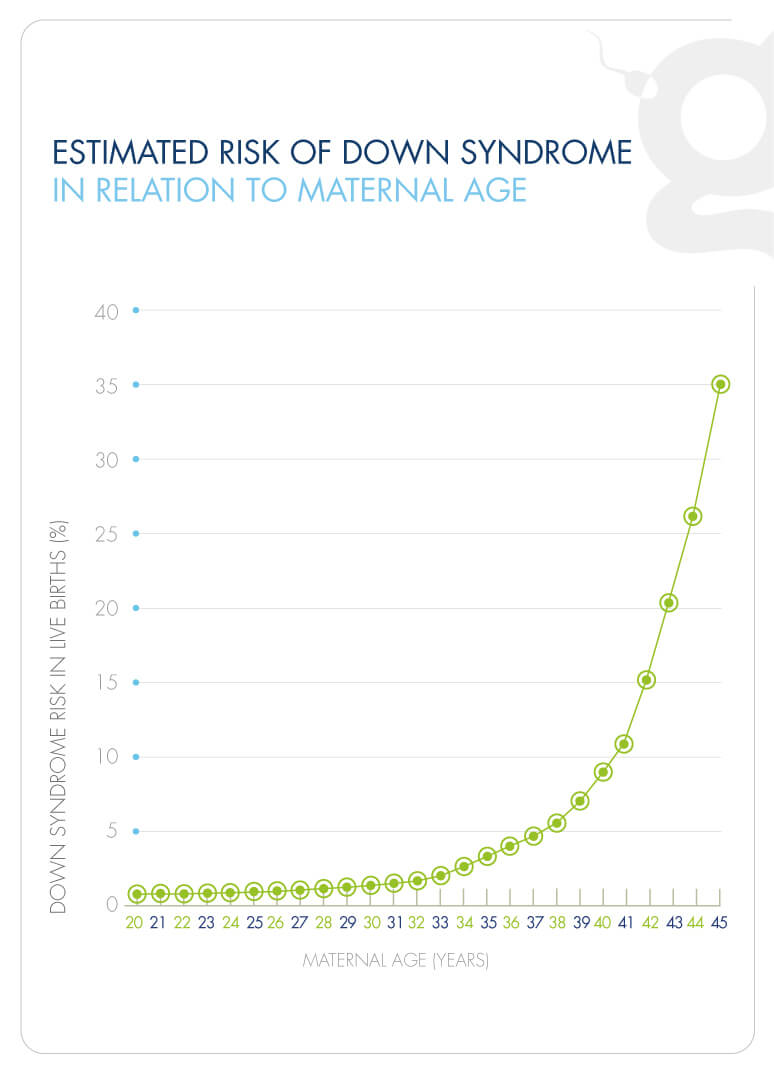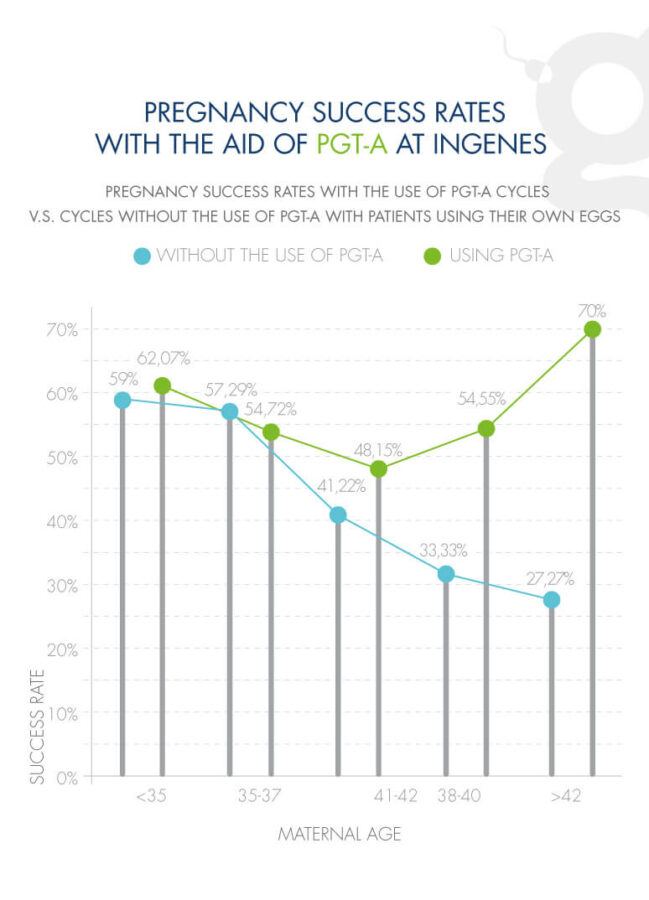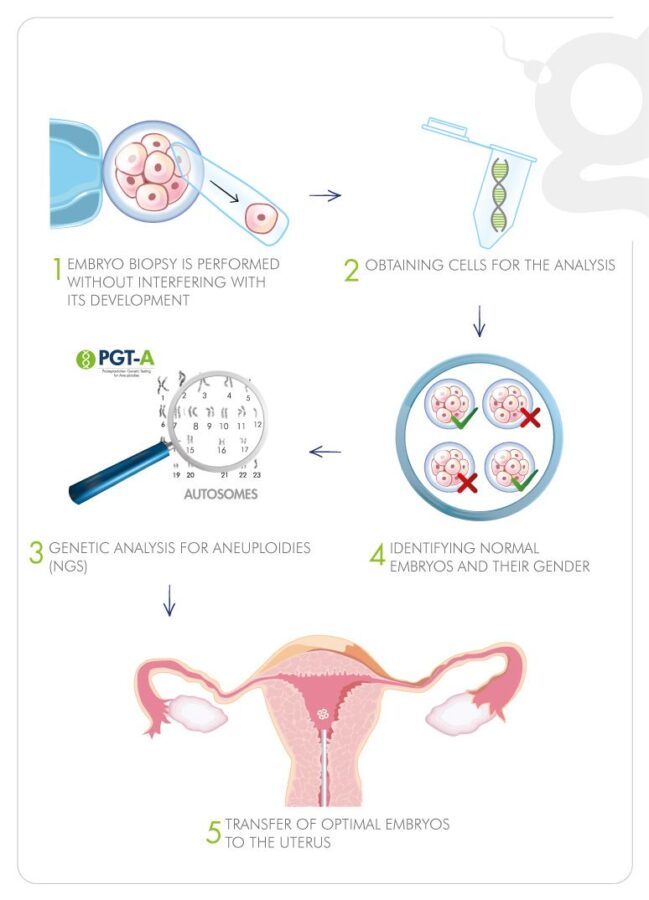PGT-A genetic testing also allows for the identification of the embryos’ sex, offering an extra option for parents who want to select the sex of their baby. PGT-A genetic testing is especially useful for couples at higher risk for chromosomal abnormalities, such as older parents or those with a history of recurrent miscarriages. The accuracy and thoroughness of preimplantation genetic testing PGT help to improve success rates in
assisted reproduction treatments. If you have any questions about PGT-A or are considering using this test to gain assurance about your future baby’s well-being, your Assisted Reproduction expert will assess your case and guide you through this process.





